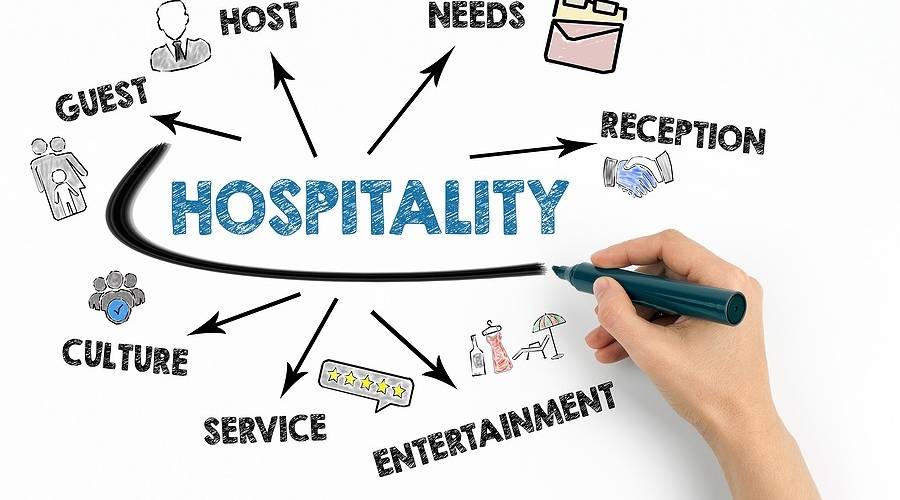
Elevating Experiences: Understanding the Dynamics of the Hospitality Industry
Hospitality involves creating welcoming environments for guests, leveraging innovation and technology to enhance their experience. Key sectors include hotels, restaurants, travel, and events. Effective hospitality management focuses on customer service, operations, and technology integration. Success in the industry relies on customer-centric approaches, continuous improvement, innovation, sustainability, and staff training.
Understanding Hospitality
Hospitality is more than just offering a warm and friendly welcome to visitors and guests. It is about creating an environment where guests feel valued and comfortable. This dynamic industry thrives on human interaction and the ability to cater to the needs and desires of people from diverse backgrounds, leveraging innovation and technology to enhance the guest experience.
Core Sectors in Hospitality
The hospitality and tourism industry primarily encompasses all activities related to travel and tourism. Key sectors include:
1. Hotels & Resorts:
- Accommodation: Providing lodging services ranging from budget-friendly options to luxurious suites.
- Amenities: Offering additional services such as pools, gyms, and business centers to enhance guest comfort.
2. Night Clubs & Bars:
- Entertainment: Providing a social atmosphere with music, dancing, and beverages.
- Safety and Service: Ensuring guest safety while maintaining high standards of customer service.
3. Restaurants & Catering:
- Dining Experience: Offering a variety of cuisines and dining styles, from casual to fine dining.
- Event Catering: Providing food and beverage services for events such as weddings, corporate gatherings, and parties.
4. Travel & Transportation:
- Convenience: Facilitating travel through services such as airlines, car rentals, and public transportation.
- Experience: Enhancing the travel experience with efficient, comfortable, and safe transport options.
5. Tourism:
- Exploration:Organizing tours and activities that allow travelers to explore and experience new destinations.
- Education: Offering cultural, historical, and environmental insights into visited locations.
6. Cruise Liners and Bus Tours:
- Travel and Leisure: Combining transportation with leisure activities, offering scenic and immersive travel experiences.
- Comfort and Convenience: Providing comprehensive packages that include accommodation, dining, and entertainment.
7. Events (Private, Business, Cultural & Sports):
- Coordination: Planning and executing events of various scales, ensuring seamless experiences for attendees.
- Variety: Catering to different types of events, from intimate gatherings to large-scale conferences and festivals.
8. Spas & Wellness:
- Relaxation: Offering services focused on relaxation, health, and well-being, such as massages, therapies, and fitness programs.
- Rejuvenation: Creating environments where guests can unwind and rejuvenate, promoting mental and physical health.
Hospitality Management
Hospitality management encompasses a range of managerial activities aimed at ensuring smooth operations within the hospitality industry. Key aspects include:
- Customer Service Excellence: Training staff to provide exceptional service that meets and exceeds guest expectations.
- Operations Management: Overseeing daily operations, including housekeeping, front desk services, and facility maintenance.
- Financial Management: Managing budgets, financial planning, and cost control to ensure profitability.
- Marketing and Sales: Developing strategies to attract and retain customers through promotions, advertising, and loyalty programs.
- Human Resources: Recruiting, training, and managing staff to maintain a skilled and motivated workforce.
- Technology Integration: Utilizing technology to enhance guest experiences, such as online booking systems, mobile apps, and smart room features.
The Role of Technology in Hospitality
Technology plays a crucial role in modernizing the hospitality industry, providing tools to enhance service delivery and customer satisfaction:
- Online Reservations: Streamlining the booking process through user-friendly platforms.
- Mobile Applications: Offering guests convenient access to services and information.
- Customer Relationship Management (CRM): Utilizing data to personalize guest experiences and improve service.
- Automation: Implementing automated check-in/check-out processes and smart room features.
- Feedback Systems: Collecting and analyzing guest feedback to continually improve services.
Strategies for Success in Hospitality
To achieve success in the hospitality industry, businesses must focus on:
1. Customer-Centric Approach: Prioritizing the needs and preferences of guests to create memorable experiences.
2. Continuous Improvement: Regularly updating and enhancing services based on guest feedback and industry trends.
3. Innovation: Adopting new technologies and creative solutions to stay competitive.
4. Sustainability: Implementing eco-friendly practices to appeal to environmentally conscious travelers.
5. Training and Development: Investing in staff training to maintain high service standards.






